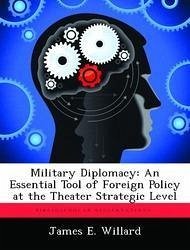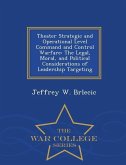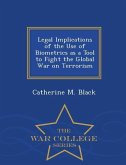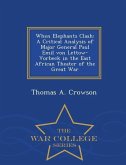The driving concept behind this monograph is the thesis that not only does the military conduct diplomacy, but military diplomacy, at the combatant command level, provides a theater strategic capability essential to the effective implementation of United States foreign policy. The monograph demonstrates that this capability arises from several organizational advantages. First, the authority vested in the combatant commander facilitates the development, resourcing and execution of military diplomacy programs within a unified chain of command. Second, the combatant command contains a highly capable staff founded on historically proven structures and doctrine. Third, an extensive network of personnel and organizations positioned to coordinate and liaise across multiple levels of authority facilitates the implementation of military diplomacy activities. Finally, an unmatched pool of resources, from which to execute military diplomacy, allows for great flexibility and responsiveness when adjusting to a complex environment. The intended end-state of the monograph is to elicit two primary responses from the reader. First, that indeed the military does conduct diplomacy as part of its day-to day mission set. Second, that military diplomacy is an essential tool in facilitating the achievement of United States strategic foreign policy aims and theater strategic objectives. The analytical methodology required to examine this topic is through qualitative analysis of primary and secondary source information. The theoretical, rather than technical, nature of the topic limits the ability to conduct a purely quantitative analysis. Theoretical and historical references provide the foundation of legitimacy for the monograph. The study of national strategic guidance, United States Pacific Command initiatives and doctrinal information establish the foreign policy development and implementation process of the United States. The examination of expert testimony and contemporary publicati








